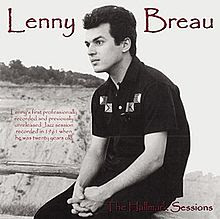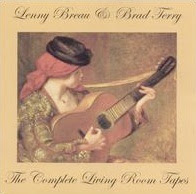 Breau’s first professional recordings, The Hallmark Sessions, with their mix of fingerstyle jazz and Spanish guitar, were made 50 years ago (more on that excellent starting point later.) Much of his career took place in California, as well as his untimely end: He was found mysteriously drowned in a swimming pool — shades of a less posh Sunset Boulevard — in Los Angeles in 1984; he was only 43. The cause of death may’ve been drug-related, it may have been strangulation: In any case, it remains unsolved.
Breau’s first professional recordings, The Hallmark Sessions, with their mix of fingerstyle jazz and Spanish guitar, were made 50 years ago (more on that excellent starting point later.) Much of his career took place in California, as well as his untimely end: He was found mysteriously drowned in a swimming pool — shades of a less posh Sunset Boulevard — in Los Angeles in 1984; he was only 43. The cause of death may’ve been drug-related, it may have been strangulation: In any case, it remains unsolved.
As a young man, Breau had gigged a bit in Canada – The Hallmark Sessions featured Levon Helm and Rick Danko of The Band as his rhythm section — but he was discovered for the wider world by Chet Atkins, an early influence. Breau never entirely lost the twang in his playing, but his style was expanded in a vast and emotionally complex way by the innovations of pianists Bill Evans and Herbie Hancock: He shared their abstract, post-bop approach and blended it with a technical precision that recalls the great Tal Farlow. (Breau and Farlow have a very fine live album, Chance Meeting, that’s easy to find online; Breau and Atkins recorded an album together that never made it to CD; here they play “Sweet George Brown” — you can hear Lenny’s wild harmonics.)
The fact that he moved to LA — perhaps the most critically maligned and misunderstood jazz center in history — didn’t help. He had limited connections to the fervor (and critical press) in New York. (And with a few exceptions, such as periods when Wes Montgomery and George Benson were popular, jazz guitar exists at a tangent to the jazz tradition as well, though that’s another post.)
Here musicians from Benson to Metheny to the Police’s Andy Summers talk about Breau.
By the end of his life, the handsome lad from Canada had come to resemble, in some photographs, a demonic, beret-wearing Frenchman, and his musical choices were not consistently strong. But Breau’s is a career that every jazz lover or guitar enthusiast should be grateful for.


Very nice. I learned some things about Lenny I didn’t know before. What a great talent.
Thank you! Glad to see a famous Bill Evans enthusiast is reading.
Thanks for remembering Lenny. I just finished reading “One Long Tune, The Life And Music Of Lenny Breau”, by Ron Forbes-Roberts. I highly recommend it. Lenny was hugely influenced by Bill, in many ways, a kindred spirit.
Glad to hear the enthusiasm for Breau. Been curious about that book, want to find it.
“I’ll Remember April” […] has dizzying spiral runs and a Rollins-like sardonic tone that does not trash the song’s frisky beauty. It was the song that convinced me of the guitarist’s genius: No matter how fast or non-linear his playing gets, it nearly always serves an emotional or narrative purpose.
Great comment on a truly great recording and player.